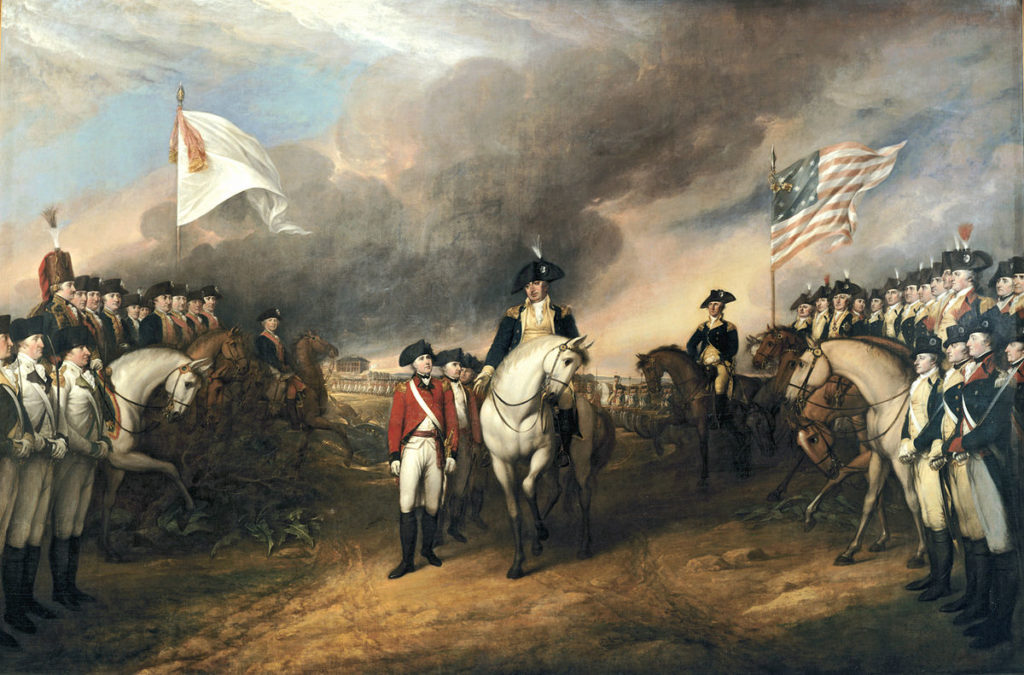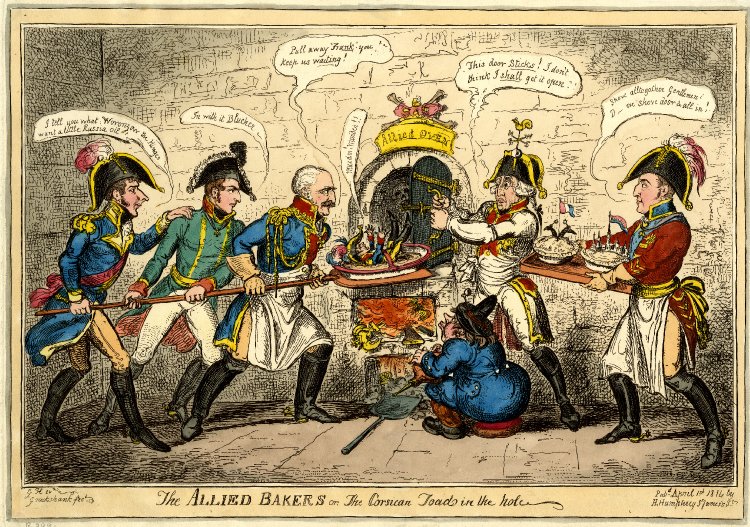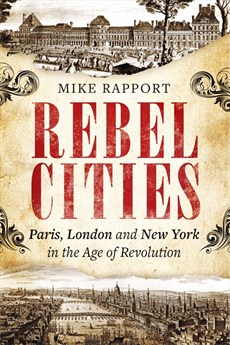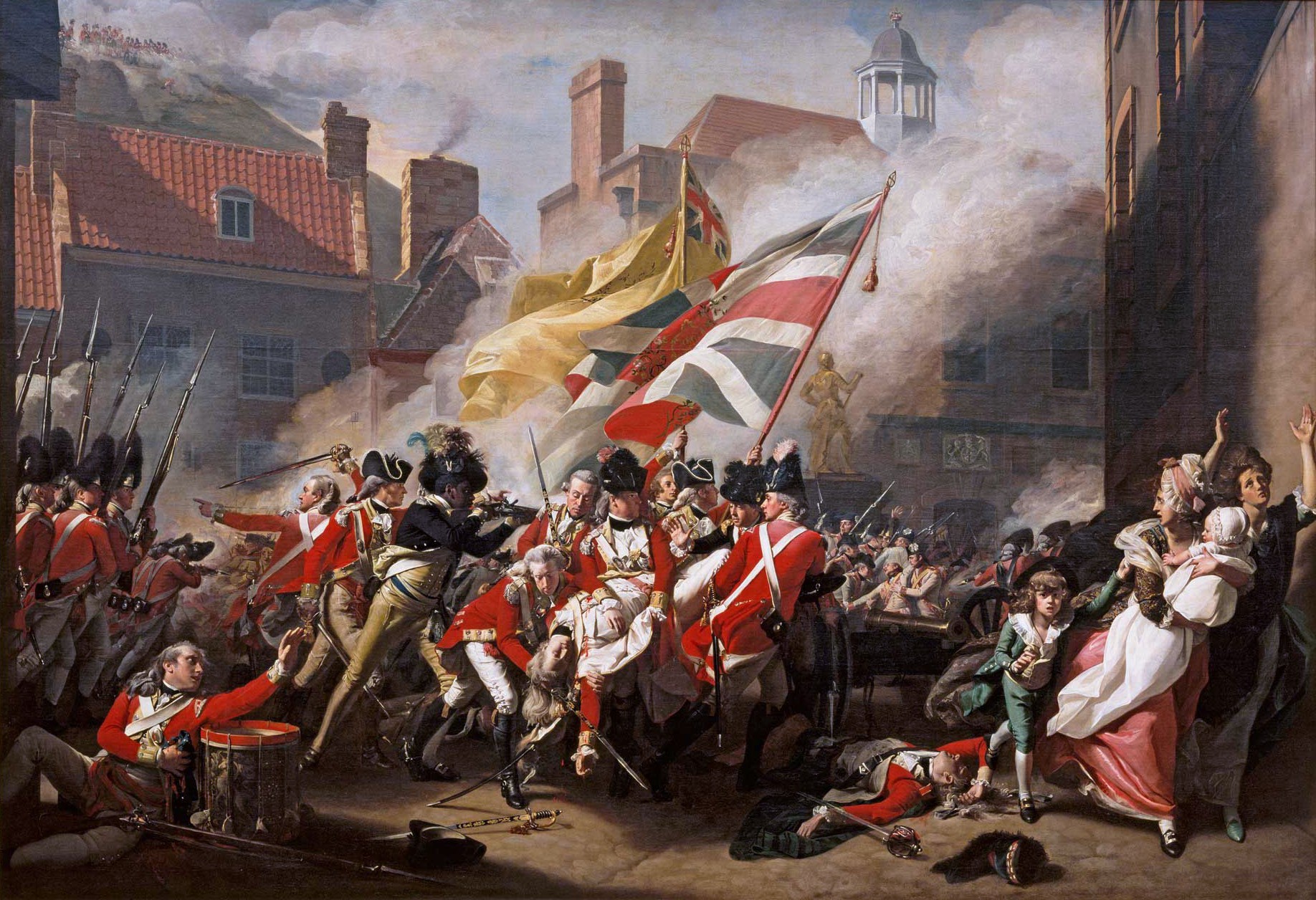How involved should Britain be in the affairs of continental Europe, rather than focus on its political and commercial relationship with the wider world? Should Britain primarily be a European or an Atlantic, indeed global, power? Can it be both? These are questions that can be illuminated by Britain’s wars against the American and French Revolutions. Responses to both upheavals were shaped by the ideological, political and religious controversies of the age, but they also expressed hard considerations of national security – and provide an historic example of the challenges Britain faced as it balanced its European and global commitments.
The American Revolution began as a crisis within the British Empire, but once war broke out between the American colonists and the British in 1775, it soon became a European and worldwide conflict. Britain’s maritime rivals, the French and the Spanish (from 1778) and then the Dutch (from 1780) sided with the Americans and there was fighting in the Americas, in Europe and in Asia, stretching British military capacity to breaking point. In other 18th century conflicts, the British could usually depend on European allies to keep its enemies engaged on the continent while they attacked their opponents’ overseas trade and colonies.

Yet during the American Revolution Britain was diplomatically isolated in Europe. This affected the outcome of the war: in 1781 in America, the Royal Navy was unable to prevent a French fleet from blockading and forcing the surrender of British forces at the decisive Battle of Yorktown. It also threatened British domestic security: when the government tried to encourage Irish recruitment by relaxing some of the civil disabilities imposed on Catholics, it provoked the worst outbreak of civil unrest that London has ever seen as anti-Catholic rioters went on the rampage for five days in June 1780. There were also repercussions in British-ruled Ireland. With troops being redeployed to America, from 1778 Irish (mostly Protestant) patriots formed the Volunteers to defend the country against an anticipated French invasion. The Volunteers went on to campaign successfully, in 1782, for full legislative powers for the Irish Parliament. So the introduction of a European dimension to the conflict tipped the military balance in the Americans’ favour and shook Britain’s political order.
The experience of the American War of Independence suggested that Britain’s position between the ‘Atlantic’ and ‘Europe’ did not pose an ‘either, or’ question. The British were unable to re-impose their authority in America without security in Europe.
This lesson would be reinforced – in reverse – from 1793, when Britain confronted the threat of revolutionary France running rampant across Western Europe. British entanglement in the French Revolutionary and Napoleonic Wars (or the ‘French Wars’) would last almost uninterrupted between 1793 and 1815. They showed again that British capacity to act freely and profitably across the globe depended upon strong British relations with Europe – and vice versa.

This new conflict was more intense, bloodier and longer than the American struggle. Yet this time Britain fought with European allies, standing alone against the might of France only for brief periods. Like the American War of Independence, these were times when the armed forces’ capabilities to defend British security were sorely tested, with the very real prospect of a French invasion in 1796-98 and 1803-5. Yet, in the end, Britain was on the winning side because of the symbiosis between Britain’s European and Atlantic (indeed global) commitments.
 The European allies who coalesced against revolutionary and Napoleonic France eventually triumphed partly because they were steeled considerably by British financial support, subsidies drawn from British credit, commerce and empire around the world. Yet essential though Britain’s financial and military contribution was to the final victory, just as crucial was European military muscle. Over the course of the French Wars, time and again Prussians, Austrians, Russians, Spanish and Portuguese (to name but a few nationalities) marched against France. They were often severely mauled and were sometimes fickle, entering into pragmatic though invariably ill-fated alliances with the French. Yet ultimately they combined in such crushing numbers that they drove Napoleon from eastern and central Europe and rolled up his empire even before his final gamble against the British and their allies at Waterloo in 1815.
The European allies who coalesced against revolutionary and Napoleonic France eventually triumphed partly because they were steeled considerably by British financial support, subsidies drawn from British credit, commerce and empire around the world. Yet essential though Britain’s financial and military contribution was to the final victory, just as crucial was European military muscle. Over the course of the French Wars, time and again Prussians, Austrians, Russians, Spanish and Portuguese (to name but a few nationalities) marched against France. They were often severely mauled and were sometimes fickle, entering into pragmatic though invariably ill-fated alliances with the French. Yet ultimately they combined in such crushing numbers that they drove Napoleon from eastern and central Europe and rolled up his empire even before his final gamble against the British and their allies at Waterloo in 1815.
In the American Revolution, Britain could not assert itself in the Atlantic while facing hostile continental neighbours. Yet it emerged from the French Wars as the preeminent global and imperial power, because Britain seized the opportunities arising from the upheaval to attack French, Dutch and Spanish colonies. On the one hand, their global reach allowed the British to inject robust financial and military help into allied cause. On the other hand, the British were freer to exploit that overseas reach because those same allies committed themselves against France on the battlefields of Europe.
Britain’s worldwide connections were indispensable to the final defeat of Napoleon, but simultaneously it needed security and co-operation in Europe. It was not an easy balance to strike then: it is no easier now.
Rebel Cities: Paris, London and New York in the Age of Revolution by Mike Rapport is available now from Little, Brown. For more on Britain’s 18th Century wars, subscribe to History of War for as little as £26.
